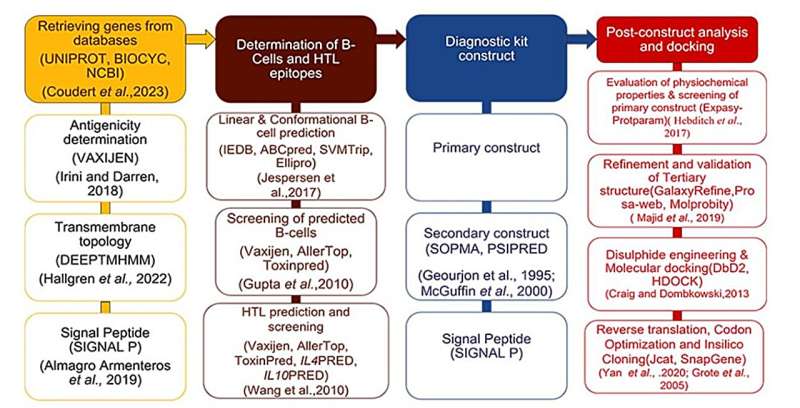This article has been reviewed according to Science X's editorial process and policies. Editors have highlighted the following attributes while ensuring the content's credibility:
fact-checked
proofread
Improving infant formula safety: A new frontier in pathogen detection

Cronobacter sakazakii, a pathogen in powdered infant formula, poses significant risks to neonates, causing outbreaks in NICUs with high mortality rates. This Gram-negative bacterium, resistant to desiccation, can survive in dry environments such as powdered formula.
Despite its prevalence, current detection methods of the pathogen are slow, requiring skilled personnel and expensive equipment, underscoring the need for a more efficient, cost-effective solution.
In a new study published in the journal Food Quality and Safety on 22 January 2024, researchers from the University of Birmingham unveil a novel bioinformatics-based detection kit for identifying Cronobacter sakazakii in powdered infant formula. This breakthrough offers a more effective approach to detecting this harmful pathogen, commonly linked to severe infant illnesses.
In this cutting-edge study, researchers have harnessed the power of bioinformatics to create a detection kit specifically designed to identify Cronobacter sakazakii in powdered infant formula. This pathogen, known for its severe health risks to infants, has been challenging to detect with traditional methods.
The research team embarked on a meticulous process, selecting genes associated with the bacterium's virulence. They then employed sophisticated immunoinformatics techniques to analyze these genes for antigenicity and epitope characteristics, leading to the creation of a multi-epitope detection kit.
This bioinformatics approach allowed for the precise identification of pathogen-specific markers, making the detection kit not only innovative but also highly efficient and potentially transformative in the field of food safety.
Lead researchers Elijah K. Oladipo and Helen Onyeaka emphasize, "This study represents a major step forward in infant food safety, potentially revolutionizing how we detect and respond to foodborne pathogens like Cronobacter sakazakii."
This detection kit promises rapid and precise identification of Cronobacter sakazakii, crucial for preventing outbreaks and ensuring infant formula safety. Its application could significantly reduce the time and resources needed for pathogen detection in food safety labs. The research underscores the importance of integrating computational methods in the fight against foodborne illnesses, offering a faster, more accurate way to safeguard infant health.
More information: Elijah K Oladipo et al, Immunoinformatics Assisted Design of a Multi-Epitope Kit for Detecting Cronobacter sakazakii in Powdered Infant Formula (PIF), Food Quality and Safety (2024). DOI: 10.1093/fqsafe/fyae005




















